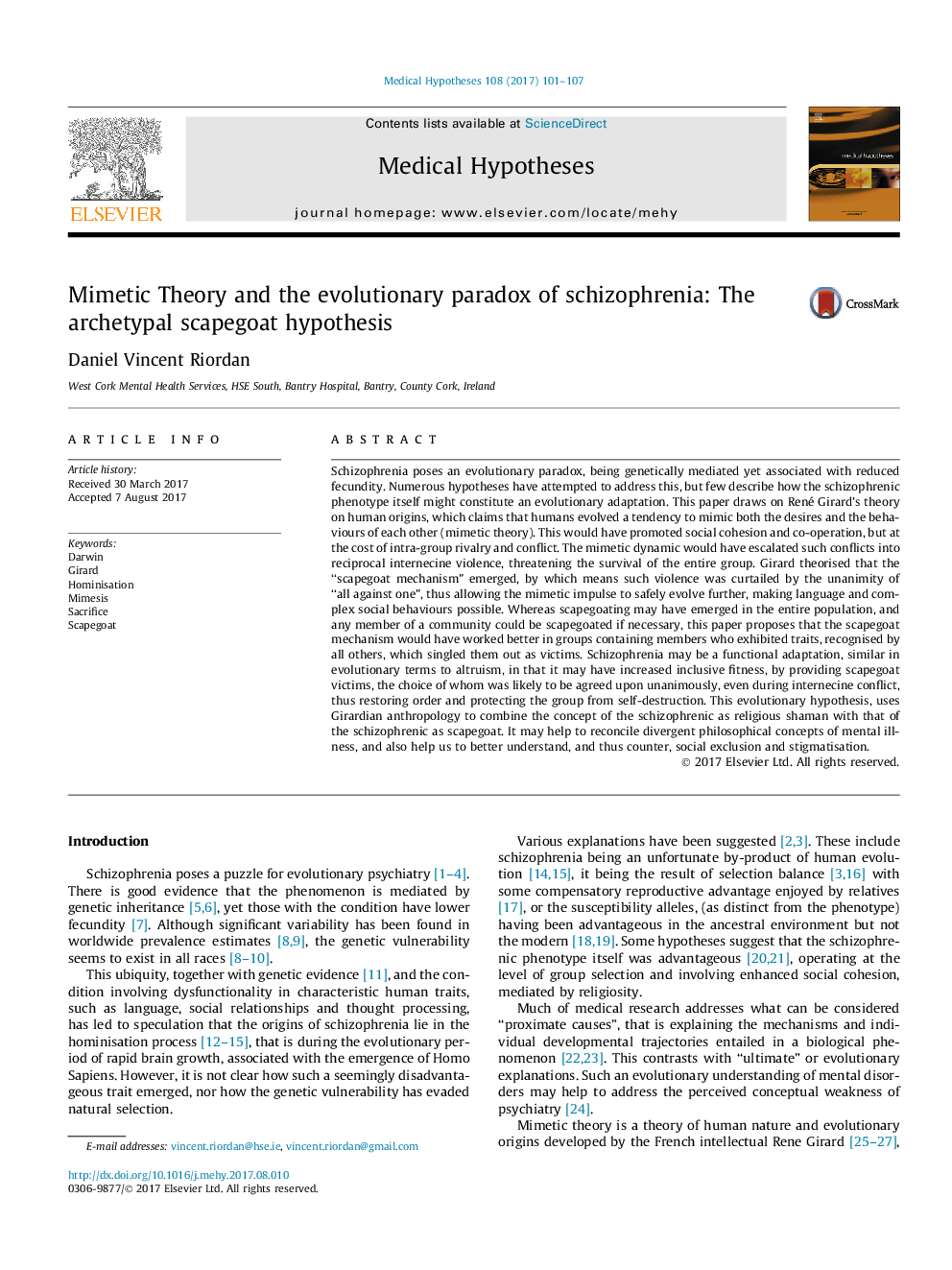| Article ID | Journal | Published Year | Pages | File Type |
|---|---|---|---|---|
| 5548346 | Medical Hypotheses | 2017 | 7 Pages |
Schizophrenia poses an evolutionary paradox, being genetically mediated yet associated with reduced fecundity. Numerous hypotheses have attempted to address this, but few describe how the schizophrenic phenotype itself might constitute an evolutionary adaptation. This paper draws on René Girard's theory on human origins, which claims that humans evolved a tendency to mimic both the desires and the behaviours of each other (mimetic theory). This would have promoted social cohesion and co-operation, but at the cost of intra-group rivalry and conflict. The mimetic dynamic would have escalated such conflicts into reciprocal internecine violence, threatening the survival of the entire group. Girard theorised that the “scapegoat mechanism” emerged, by which means such violence was curtailed by the unanimity of “all against one”, thus allowing the mimetic impulse to safely evolve further, making language and complex social behaviours possible. Whereas scapegoating may have emerged in the entire population, and any member of a community could be scapegoated if necessary, this paper proposes that the scapegoat mechanism would have worked better in groups containing members who exhibited traits, recognised by all others, which singled them out as victims. Schizophrenia may be a functional adaptation, similar in evolutionary terms to altruism, in that it may have increased inclusive fitness, by providing scapegoat victims, the choice of whom was likely to be agreed upon unanimously, even during internecine conflict, thus restoring order and protecting the group from self-destruction. This evolutionary hypothesis, uses Girardian anthropology to combine the concept of the schizophrenic as religious shaman with that of the schizophrenic as scapegoat. It may help to reconcile divergent philosophical concepts of mental illness, and also help us to better understand, and thus counter, social exclusion and stigmatisation.
